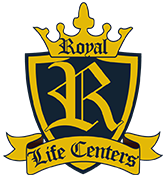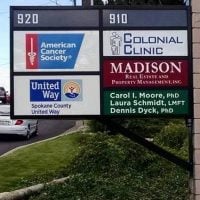Crisis Intervention Counseling
Drug Rehab Center in Colville, Washington
Crisis Intervention Counseling in Colville, Washington offers comprehensive and personalized addiction and substance abuse treatment through individual and group counseling, family therapy, and crisis intervention, while also providing assessment, evaluation, and discharge planning to support recovery.
Multiple patients have reported Crisis Intervention Counseling as permanently closed.
Research other rehabs in Colville, Washington, or get help finding an open facility.
About This Washington Facility
Crisis Intervention Counseling in Colville, Washington is a highly experienced and compassionate team who offers assistance to those struggling with addiction and substance abuse. Their staff of certified counselors, therapists, and other trained professionals is dedicated to patient-centered care that is tailored to meet the individual’s needs. They utilize evidence-based practices to provide a comprehensive approach to treatment that is personalized to support each individual in recovery.
Crisis Intervention Counseling addresses mental health issues and addictive behavior with a comprehensive set of services. These services include individual and group counseling, family therapy, self-help groups, and crisis intervention. Clients are provided with the tools to build resilience and make healthier lifestyle choices. Assessment, evaluation, treatment planning and discharge planning are also provided to support recovery from addiction. In addition, Crisis Intervention Counseling helps clients to strengthen their coping skills, build healthy relationships, and make positive changes to achieve a lasting recovery.
Crisis Intervention Counseling is accredited by the Commission on Accreditation of Rehabilitation Facilities (CARF) and is licensed by the State of Washington. They offer a variety of unique treatment options including family involvement, peer recovery coaching, gender-responsive substance use disorder treatment, and trauma-informed services. Crisis Intervention Counseling has also been awarded the Washington State Department of Behavioral Health & Recovery Mental Health Professional Excellence Award.
Genders
Ages
Modality
Additional
Conditions and Issues Treated
Opioid abuse has become a national epidemic in the last decade. The US has one of the world’s highest rates of opioid use and abuse, as well as opioid-related deaths. Opioids are classified as Schedule II-IV controlled substances in the US due to their high potential for abuse.
Oxycodone, hydrocodone, methadone, and fentanyl are the most common Opioids and are commonly prescribed to treat pain. Tolerance to opioids develops over time, making life difficult, if not impossible, without them. Opioid users often obtain the drugs illegally. They can be drug dealers, friends, or family members who do not have valid prescriptions.
The desire for a more intense high than prescription opioids can quickly lead to heroin use. Heroin users are more prone to illness and death due to the high risk of overdose.
Many opioid addicts who seek treatment believe that the only way to overcome their addiction is through medical detox and long-term drug addiction rehab. To help patients wean off their addiction and reduce the risk of overdose, medication-assisted therapy (MAT) involves prescribing a replacement opioid. Doctors use MAT in conjunction with other anti-craving medications to help patients maintain recovery. Due to the high risk of relapse, MAT is often combined with individual and group counseling and social support programs.
Levels of Care Offered at Crisis Intervention Counseling
This center offers a variety of custom treatment tailored to individual recovery. Currently available are Aftercare Support, Drug Rehab, Intervention, Outpatient, with additional therapies available as listed below.
An outpatient treatment program is set up to help with alcohol or drug addiction or a co-occurring disorder. The patient must attend the facility for their therapy and other programs but can return home each night.
The frequency of mandatory attendance decreases after much of Crisis Intervention Counseling‘s program is complete.
Outpatient treatment is a recovery approach that allows recovering addicts to live at home while getting rehab for addiction
An outpatient can include day treatments which include attending group sessions one hour per week. A person living in an outpatient environment may be allowed the opportunity to work full time if they choose to and continue studies without interruption from drugs/alcohol.
Outpatient treatment is an option for people who want to maintain their careers and families. Outpatients live at home but attend treatment such as individual counseling, group counseling, or twelve-step meetings during the day.
Interventionism is a technique used to help an addict get clean and sober. The process begins with the addict’s family, friends, and co-workers gathering together to confront the addict about their addiction. This kind of treatment aims to get the addict in touch with their feelings about their addiction. They are encouraged to speak honestly about their drug use, as well as how it’s making them feel. Most addicts come to understand that their loved ones are only trying to help them.
Aftercare support is vital to the success of someone in drug or alcohol treatment. It involves assisting with entering a sober living home, getting career counseling or educational assistance and even getting the individual lined up with programs like AA and NA. This support helps recovering addicts readjust to normal day-to-day activities and maintain sobriety.
When a person is in drug or alcohol treatment, they have to increase their focus on themselves. They need to learn how to recognize the triggers that cause them to relapse and learn the habits that would benefit them if they were to be sober. This is all part of the growth in recovery, and aftercare is essential to that process.
Therapies & Programs
At Crisis Intervention Counseling , to learn from past mistakes and improve one’s situation, the recovering person meets individually with a therapist. The counselor or therapist will address addiction causes, triggers, mental issues, dual diagnosis, and aftercare plans during this time. This is a very intense and challenging process. Some clients find it easier to open up to someone other than family or friends who understand their struggles with addiction.
Couples therapy sessions are typically used to help couples in recovery from drug addiction work through their issues. These types of sessions can be beneficial for many reasons, including the fact that they add a layer of accountability when both partners in a couple are recovering from addiction.
Therapy can also provide addicts with another effective way to cope with stress and avoid relapse during difficult situations. This type of therapy can help improve communication with their partners, which can strengthen the relationship and prevent future problems that might lead to relapse.
Family therapy is a crucial part of drug treatment and getting sober. It is one of the most effective ways to help addicts stay on the path to long-term sobriety. An addict’s family can play a vital part in helping them to avoid relapse. They can spot the warning signs and help them get back on track.
In group therapy, recovering addicts meet with a therapist and other people in recovery. Some groups are closed, meaning only people who share the same addiction or problem can attend. Others are open to anyone who wants to stop using drugs or drinking alcohol. Group therapy sessions typically focus on one topic each week or month so that recovering addicts can discuss issues they face daily.
Payment Options Accepted
For specific insurance or payment methods please contact us.
Additional Details
Specifics, location, and helpful extra information.
Colville, Washington 99114 Phone Number(509) 684-4597 Meta DetailsUpdated November 25, 2023
Staff Verified
Patient Reviews
There are no reviews yet. Be the first one to write one.
Colville, Washington Addiction Information
Washington's substance use, abuse, and addiction rates have followed the trends of the rest of the over the past years. Methamphetamine abuse is the biggest threat to Washington. Heroin-related overdoses increased by almost 450% from 2006 to 2016. 20% of all annual deaths in Washington are somehow drug and/or alcohol-related. Drugs are widely abused in Washington because they are easily trafficked in and out of the state.
Treatment in Nearby Cities
- Mountlake Terrace, WA (209.8 mi.)
- Elma, WA (277.1 mi.)
- Ridgefield, WA (293.5 mi.)
- Bothell, WA (205.7 mi.)
- Sequim, WA (241.2 mi.)
Centers near Crisis Intervention Counseling
The facility name, logo and brand are the property and registered trademarks of Crisis Intervention Counseling, and are being used for identification and informational purposes only. Use of these names, logos and brands shall not imply endorsement. RehabNow.org is not affiliated with or sponsored by Crisis Intervention Counseling.






